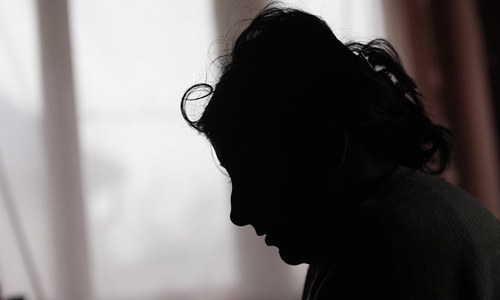In a shocking incident that underscores the persistent gender biases and violence as a Pakistani woman was tortured to death by her husband and in-laws after giving birth to her fifth daughter. The tragic event, which occurred in Bahawalnagar, Punjab, has sparked outrage and renewed calls for addressing the deeply entrenched prejudices against female children in certain parts of the country. This case of fatal gender-based violence serves as a stark reminder of the challenges women face in a society where the birth of a daughter is often seen as a disappointment or burden.
The Tragic Tale of Shumaila Bibi
Shumaila Bibi, a resident of Kot Radha Kishan, Pakistani woman had entered into a love marriage with Nauman from Bahawalnagar. The couple had two sons and four daughters, with their latest child being a girl. However, what should have been a joyous occasion turned into a nightmare for Shumaila. Living in Khadam Abad Colony within the Khadam area of Bahawalnagar, she faced relentless abuse from her husband and in-laws. The root causes of this mistreatment were twofold: her family’s inability to provide a substantial dowry and her perceived “failure” to bear more sons.
The abuse Shumaila endured escalated over time, culminating in a fatal assault following the birth of her fifth daughter. Her brother, upon learning of the tragedy, filed a complaint with local authorities. Responding swiftly, the police registered a case against Nauman at the City B Division Police Station and subsequently arrested him. To ascertain the precise cause of death, Shumaila’s body was sent to the District Hospital for a post-mortem examination.
This heartbreaking incident sheds light on the dangerous consequences of gender discrimination and the immense pressure placed on women to produce male heirs. It also highlights the vulnerabilities faced by women who marry outside traditional arranged unions, as they may find themselves with less familial support in times of crisis.
The Wider Context of Gender Discrimination in Pakistan
Shumaila’s case, while extreme, is not isolated. It reflects a broader pattern of gender-based discrimination and violence that persists in certain segments of Pakistani society. Another recent case from Rahim Yar Khan illustrates this point. Amna Bibi, married for fifteen years, was divorced by her husband, Fayyaz Ahmed, solely because she had given birth to five daughters and no sons.
After the divorce, Fayyaz not only abandoned his wife but also refused to provide any financial support for his daughters. This left Amna in a precarious situation, forced to become the sole provider for her family. Demonstrating remarkable resilience, she set up a Biryani stall to earn a living and support her daughters.
These cases underscore the cultural preference for male children that still exists in some communities. This preference stems from various factors, including patriarchal traditions, economic considerations (as sons are often viewed as future breadwinners), and the belief that only male children can carry on the family name and legacy.
Addressing the Root Causes of Gender-Based Violence
The tragic death of Shumaila Bibi and the hardships faced by women like Amna Bibi call for urgent action to address the root causes of gender-based violence and discrimination in Pakistan. Several key areas require attention:
1. Legal reforms: While Pakistan has laws against gender-based violence, their implementation often falls short. Stricter enforcement and harsher penalties for perpetrators of such crimes are necessary.
2. Education and awareness: Widespread campaigns to educate the public about gender equality and the value of female children are crucial. This includes challenging deeply ingrained cultural beliefs and practices that perpetuate gender biases.
3. Economic empowerment: Providing women with better educational and economic opportunities can help reduce their vulnerability to abuse and increase their status within families and society.
4. Support systems: Establishing and strengthening support systems for women facing domestic violence, including shelters, legal aid, and counseling services, is essential.
5. Changing societal attitudes: Encouraging positive representations of women and girls in media and popular culture can help shift societal perceptions over time.
The case of Shumaila Bibi a Pakistani woman tortured to death after giving birth to her fifth daughter, serves as a grim reminder of the deadly consequences of gender discrimination. It highlights the urgent need for societal change, legal reforms, and concerted efforts to protect women’s rights and dignity. As Pakistan strives for progress and development, it must confront and overcome these deeply rooted biases that continue to claim innocent lives and hinder the potential of half its population. Only through sustained efforts to promote gender equality and challenge harmful traditional practices can Pakistan hope to create a safer, more equitable society for all its citizens, regardless of their gender.
Related News
















